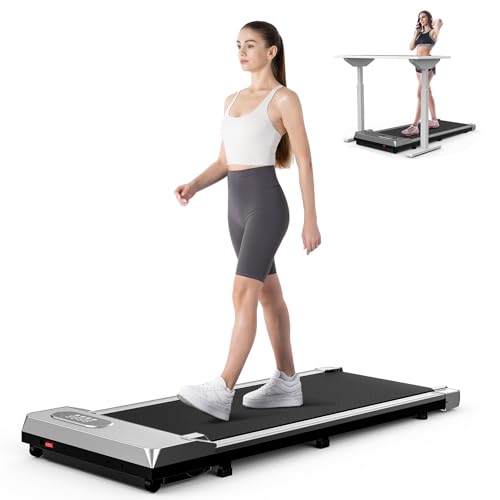20 Walking Machine Websites That Are Taking The Internet By Storm
The Walking Machine: A Comprehensive Guide to Your Fitness Companion
In today's busy world, where time is a high-end, keeping a constant workout regimen can be a difficulty. For numerous, a walking machine— typically understood as a treadmill— serves as an ideal fitness companion. This short article supplies a thorough look at walking machines, including their advantages, types, maintenance pointers, and regularly asked questions.
Why Choose a Walking Machine?
Walking machines provide a useful and efficient way to integrate cardiovascular workout into every day life. Here are several key advantages:
- Convenience: Walking machines enable individuals to work out anytime, despite climate condition or time restraints. They are best for busy schedules.
- Flexibility: Users can walk, jog, or perform at their own pace and intensity.
- Safety: Walking machines provide a lower risk of injury compared to outside walking or running, especially for novices or those recuperating from injuries.
- Tracking Progress: Many treadmills featured built-in screens that track metrics like speed, range, and calories burned.
Kinds Of Walking Machines
When thinking about a walking machine, it's necessary to pick the right type based upon individual fitness goals and area constraints. Below are the main kinds of walking machines:
Type
Description
Manual Treadmills
These machines do not have a motor, and users require to stroll or run to rotate the belt.
Electric Treadmills
Powered by an electric motor, enabling users to set the speed and slope easily.
Folding Treadmills
Developed for simple storage, these treadmills can be folded up when not in usage.
Desk Treadmills
Ideal for a double work and exercise environment, these compact machines allow walking while working.
Incline Trainers
These enable users to imitate uphill walking, enhancing workout intensity and calorie burn.
Selecting the Right Walking Machine
Picking the best walking machine can considerably impact motivation and efficiency. Here are some factors to think about:
Key Features to Look For
- Motor Power: A powerful motor makes sure a smooth and consistent workout. For periodic walkers, a 1.5 HP motor is normally enough; for heavier use, look for 3.0 HP and above.
- Belt Size: A larger and longer belt provides more area for a comfy stride. Standard sizes range from 16 inches large and 50 inches long.
- Incline Options: Adjustable slope settings can simulate walking or running uphill, increasing the intensity of the workout.
- Shock Absorption: Good shock absorption reduces the threat of joint injuries and enhances convenience.
- Console Features: Look for built-in exercises, heart rate displays, and connectivity features like Bluetooth for a more engaging experience.
Spending plan Considerations
Walking machines been available in a vast array of costs, depending upon functions and building quality. Here's a rough budget plan breakdown:
Price Range
Features
Under ₤ 300
Fundamental handbook or little electric treadmills with restricted functions.
₤ 300 – ₤ 700
Advanced electric treadmills with incline, medium power motors, and better service warranties.
₤ 700 – ₤ 1500
Top quality electric treadmills with bigger integrated screens, substantial features, and guarantees.
₤ 1500 and above
High-end designs providing sophisticated innovation, functions, and long lasting building for severe physical fitness enthusiasts.
Upkeep Tips for Your Walking Machine
To ensure longevity and optimum performance of a walking machine, consider the following upkeep tips:
- Regular Cleaning: Dust and sweat can accumulate on the machine and the belt. Wipe down the surfaces and tidy the belt routinely.
- Lubrication: Depending on the model, oiling the running belt regularly can prevent wear and tear. Check the maker guidelines for suggested lubrication schedules.
- Inspection: Periodically check the machine for loose screws or used parts. Tighten up and replace as needed.
- Calibration: Occasionally, inspect the calibration of your machine's metrics to ensure they provide precise information.
- Proper Use: Follow the manufacturer's suggestions for weight limits and functional guidelines.
FAQs About Walking Machines
1. Are walking machines a good workout?
Yes, walking machines provide an excellent cardiovascular exercise, can help with weight reduction, and improve general health.
2. How frequently should I utilize a walking machine?
Goal for at least 150 minutes of moderate-intensity aerobic activity each week, which can easily be achieved with routine sessions on a walking machine.
3. Can I slim down on a walking machine?
Yes, integrating a walking machine regimen into a healthy diet plan can promote weight loss, particularly if combined with periods and incline training.
4. Is it safe for seniors to utilize a walking machine?
Yes, walking machines can be safe for seniors with low-impact settings and safety features like handrails. Nevertheless, people ought to seek advice from their doctor before starting any workout program.
5. What's the difference in between a treadmill and a walking machine?
The term “walking machine” normally refers to a treadmill planned for walking, while “treadmill” can describe machines utilized for different strengths, consisting of running.
With their flexibility and convenience, walking machines can significantly enhance one's fitness journey. By carefully picking milagrosmilelr.top , making sure correct maintenance, and including different workout techniques, users can maximize their walking machine's benefits. Just like any workout routine, consistency is essential to achieving enduring physical fitness results.
